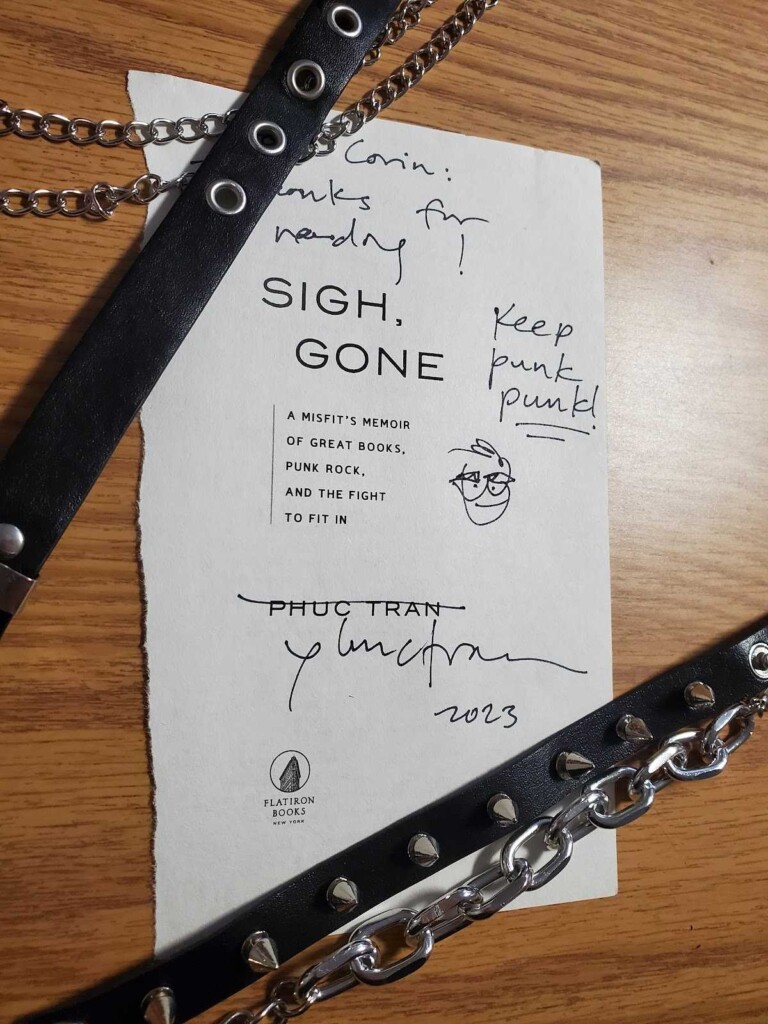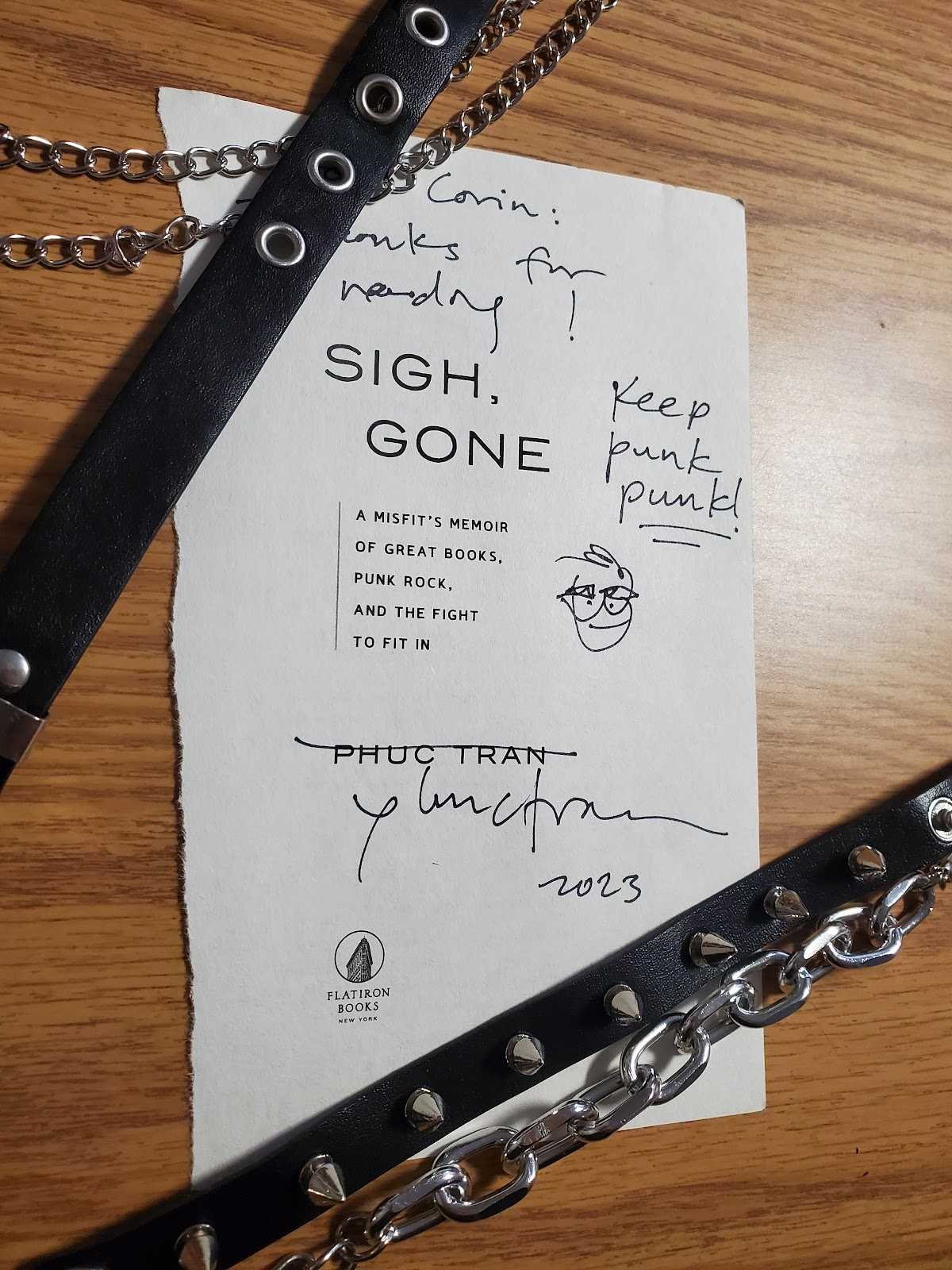Grown-Up Punk: An Interview With Sigh, Gone Author Phuc Tran

What is punk? How do you put a label on something meant to escape boundaries? How can you get specific with such an umbrella term?
Author, tattoo artist, and former language teacher Phuc Tran isn’t sure, and he’s one of the most punk men I’ve had the pleasure of meeting.
Phuc’s novel, Sigh, Gone, is about his struggle to fit in as a young man in 1970s America, as a Vietnamese immigrant alongside his parents, younger brother, and extended family. Somewhere so potent with racism – especially anti-Asian prejudice – made childhood and beyond both alienating and stressful for Phuc, to say the least. His hobbies, which were an escape for him, ranged from comics to formal literature to punk rock music to skateboarding. He found a place among the punks of Carlisle, PA, who were brought together by being different and didn’t care all that much about race.
That doesn’t mean the punks were accepting of all behavior; the culture was, and still often is, a list of do’s and do not’s. Wear this, look like this, talk like this, like this music.
For a group trying to be as counter-culture as possible, any “rules” are immediately counterintuitive. As Phuc put it during a group interview held in the Castle’s Mirror Room, the ideals of punk are universal – questioning authority, challenging stigmas, refusing to accept what isn’t right. He named Socrates and Henry David Thoreau as examples, people who are not usually associated with rock culture, yet they perfectly fit the bill. Free thinking, so free there’s not even a box to think outside of, is the proper and scientific method to punk.
Being open-minded is a hard trait to learn, but it is one of the lifelong impressions punk leaves on a person. Phuc told us he tries “to say yes a lot.” He presented his own TEDx talk in 2012, decided to write a book surrounding his life in 2013, and agreed to talk to a school full of first-year students at Arcadia University in 2023 – all new experiences for him.
“If you say no to things, you’ll know exactly what your Friday night is gonna look like,” Phuc told us. It can be enriching to explore the unknown and try new things. When asked what advice he would give to those his age at the end of the novel, he told us to be “curious about [ourselves].” Because he was so obsessed with labels and fitting in, he never gave himself the opportunity to discover who he really was, at least, not for several years.
Phuc told us about his decade-long experience with therapy. He described writing Sigh, Gone as a therapeutic process, but added, “You know what’s therapeutic? Therapy.” Unpacking what one keeps inside is another part of being curious, except with endless healing benefits, he said. Concerning the writing of his book and all its moments of joy and of pain, Phuc quoted a common saying: “Speak from the scar, not from the wound.” In order to write his autobiography, it was crucial to remove any active suffering and write with the knowledge taken away.
Sigh, Gone is nothing if not wise and teachable, written with wit, charisma, and some profanity. Phuc himself speaks with the experiences of being an immigrant, an artist, a father and husband, brother and son. I had a brief conversation with him about my all-time favorite band (Fall Out Boy), and asked him about his opinion on modern punk. While he finds himself reaching more toward indie, electronic, and 90’s hip-hop music nowadays, he respects the modern scene. He described one’s past music taste like a past outfit; you might not look as cool wearing the same outfits you did at 18, but you might just feel the thrill of wearing them again.
After waiting in line for a few minutes, I left that night with a signature in my copy of Sigh, Gone:
For Corin: Thanks for Reading! Keep punk punk! Phuc Tran 2023
Sigh, Gone is easily the best non-fiction summer text I’ve read, and to Phuc, I plan to keep punk punk as long as I possibly can – and I urge all readers, punks or not, to do the same.



